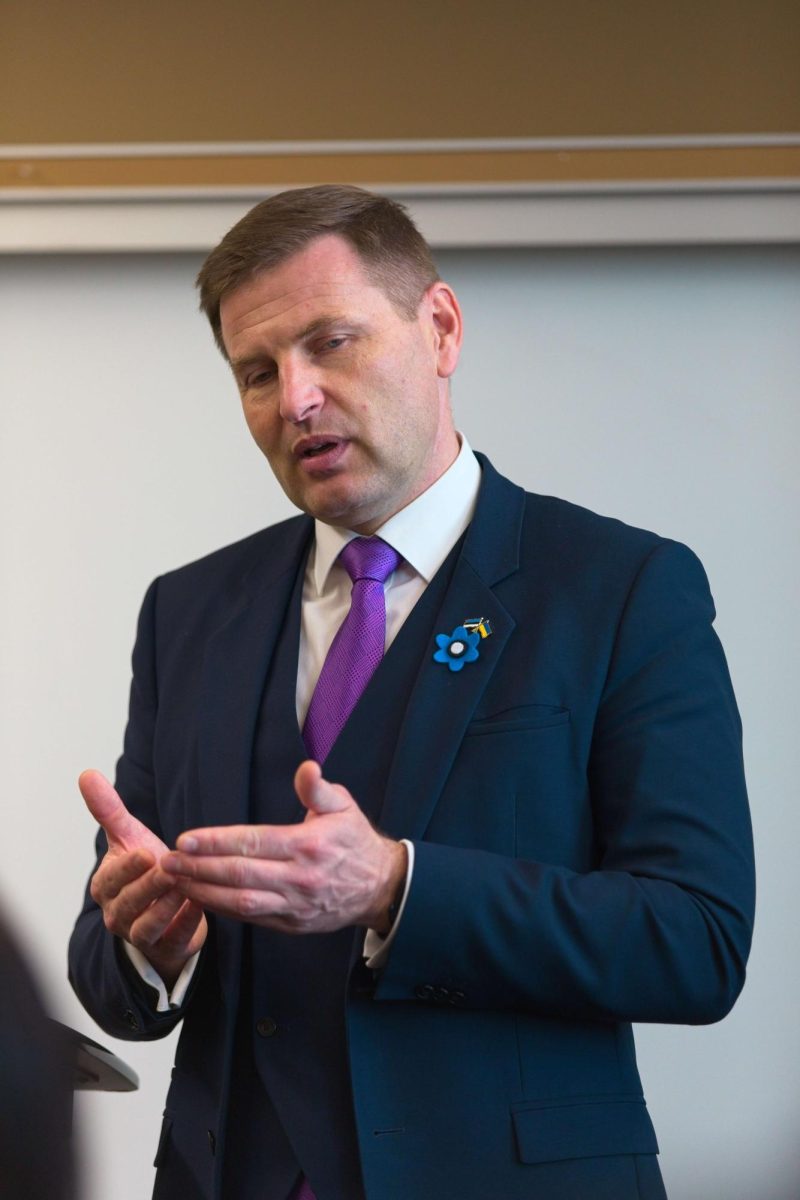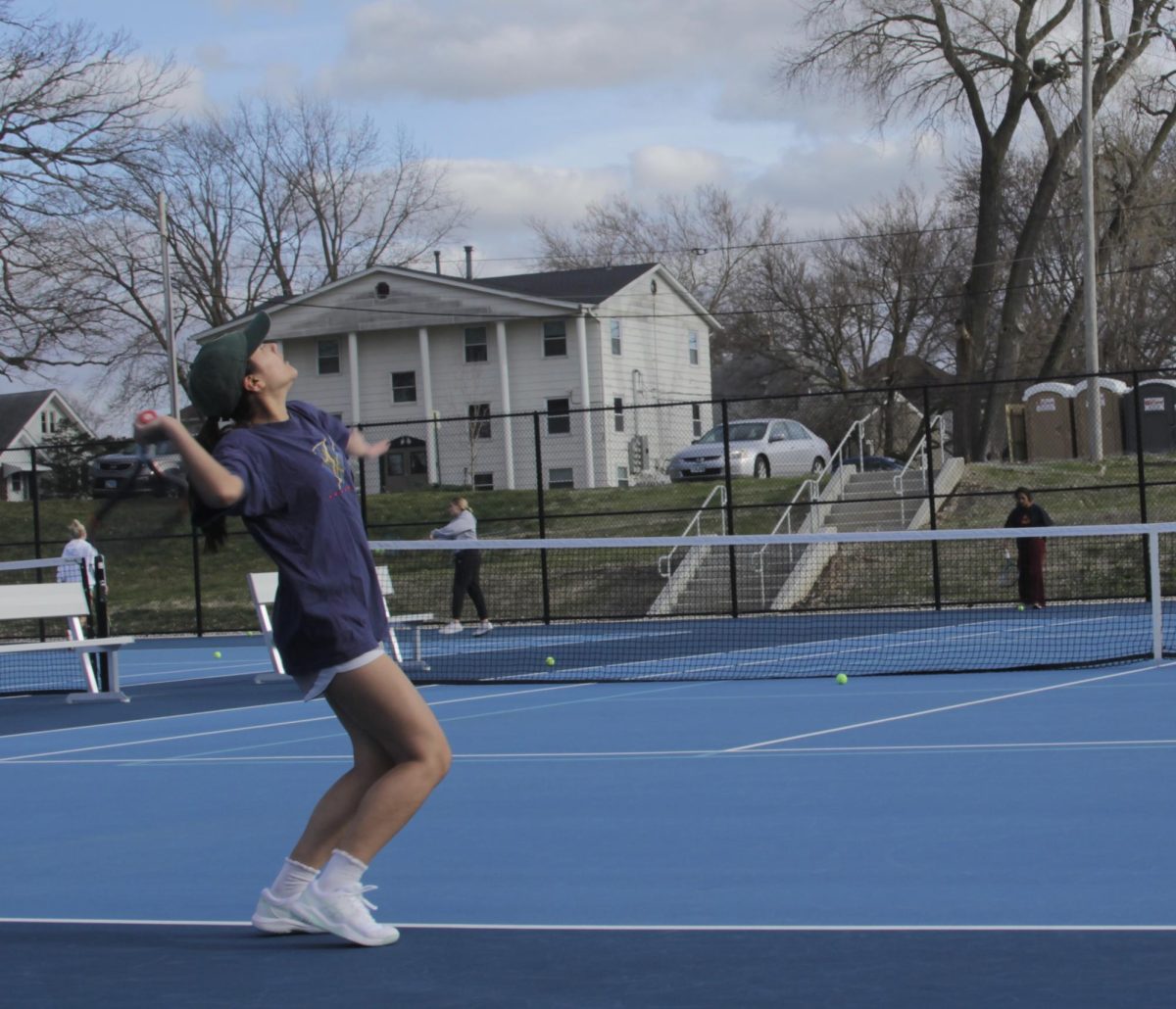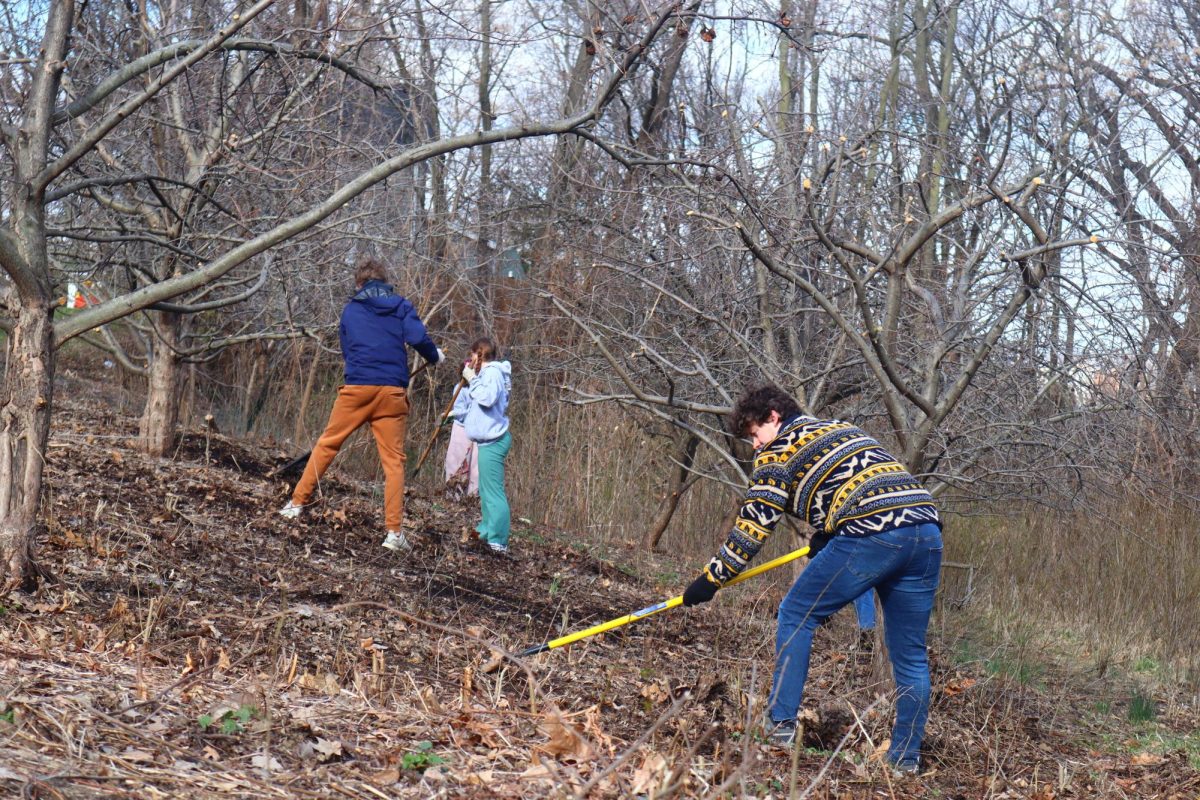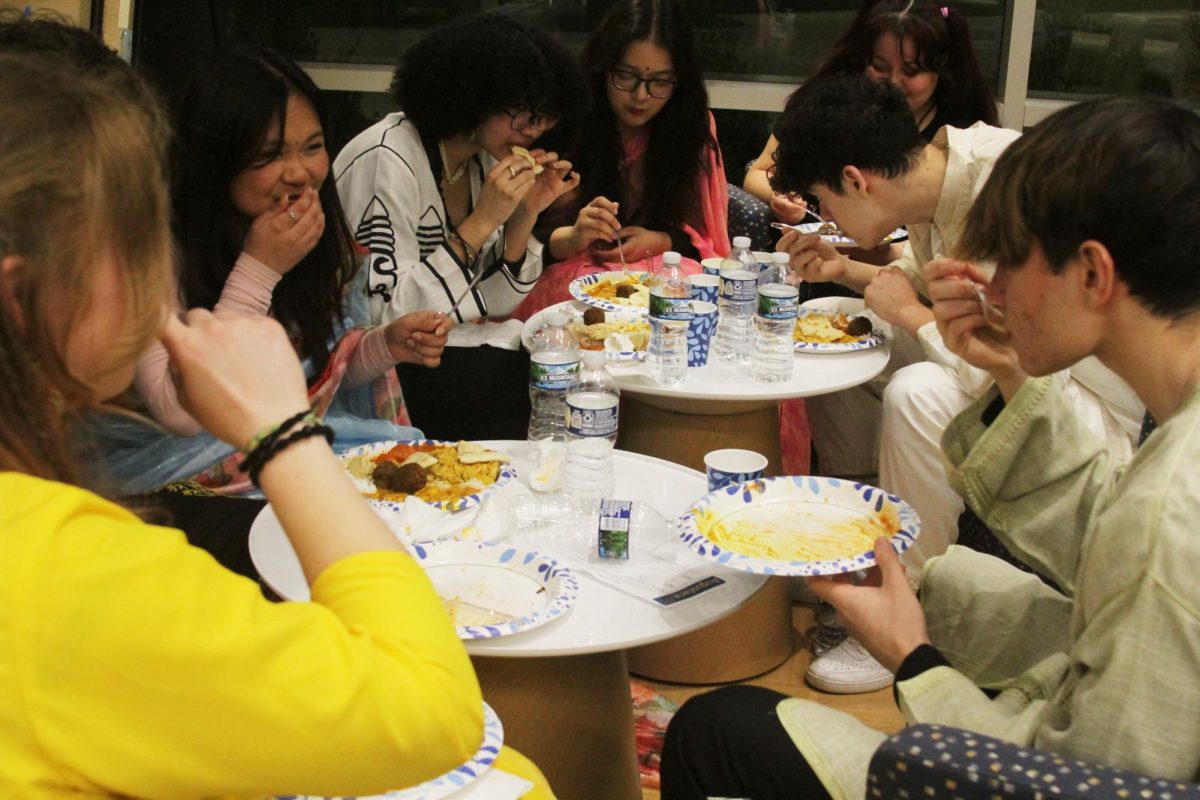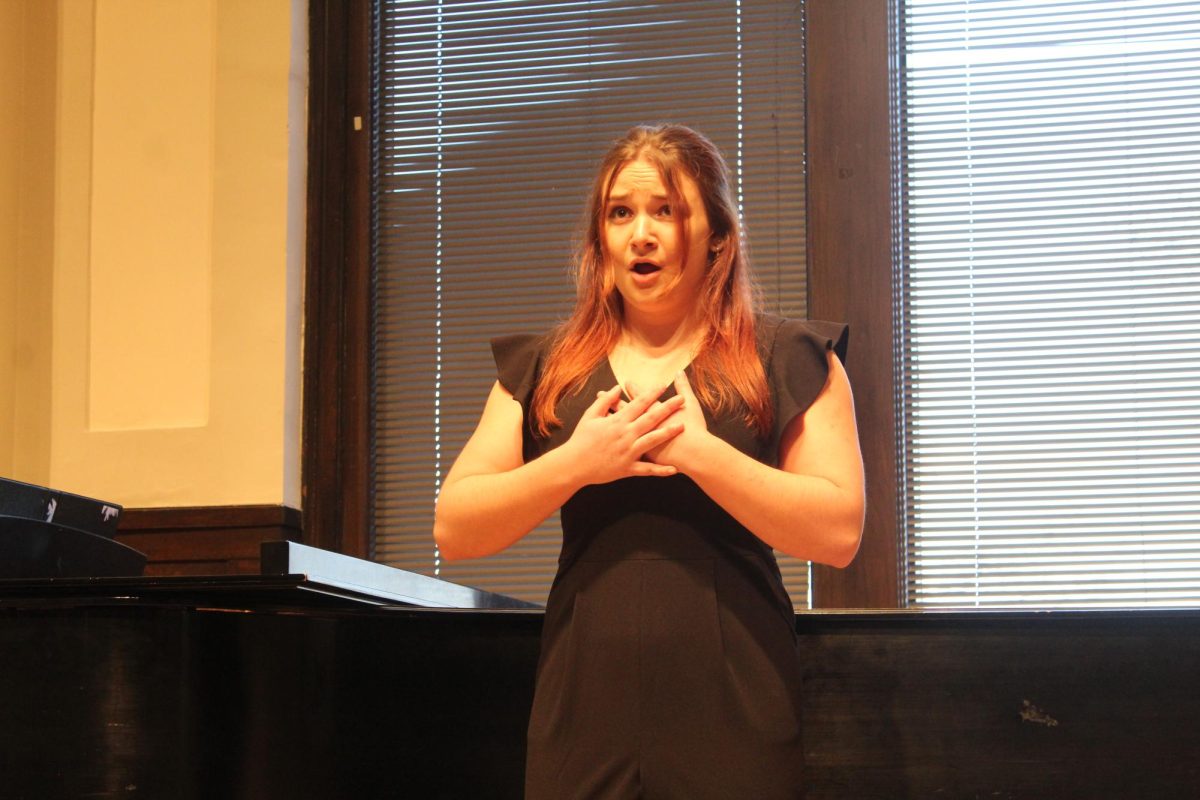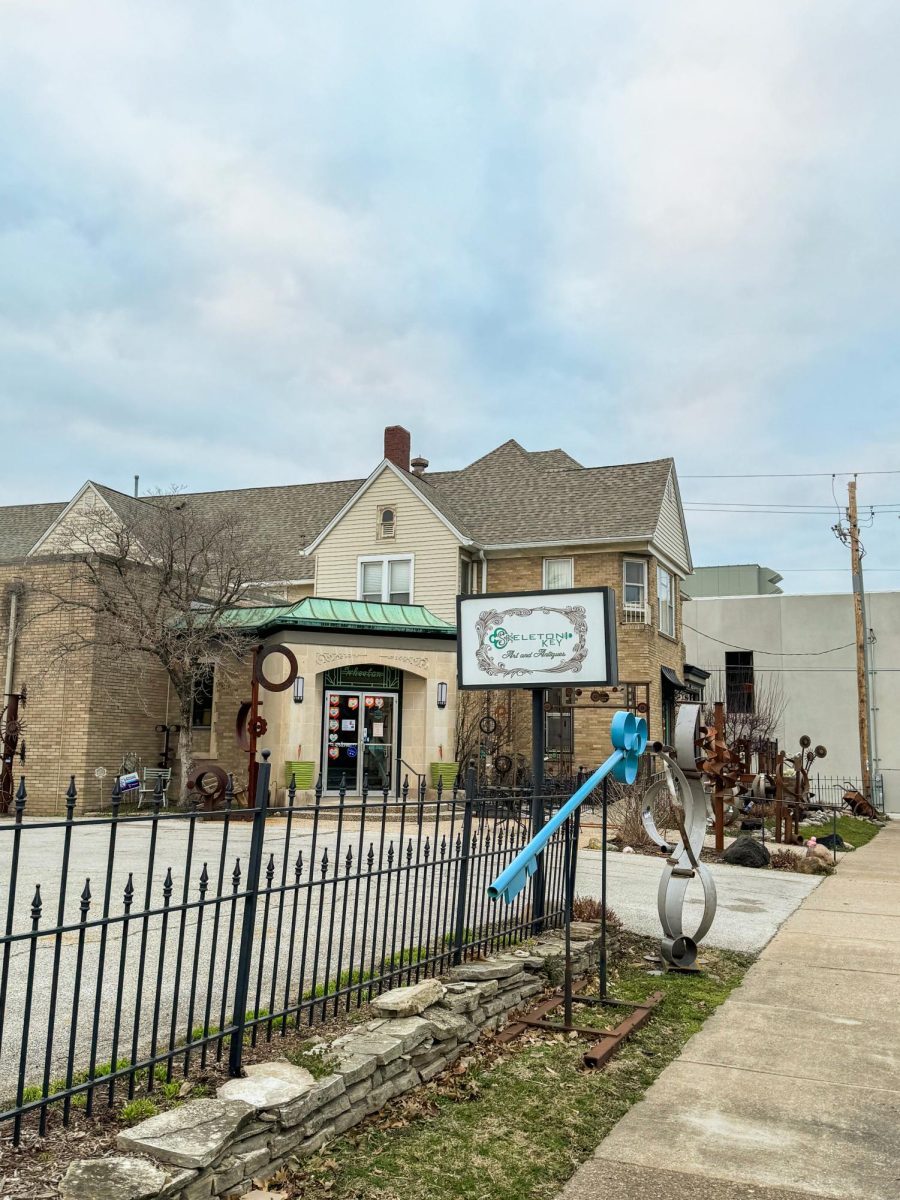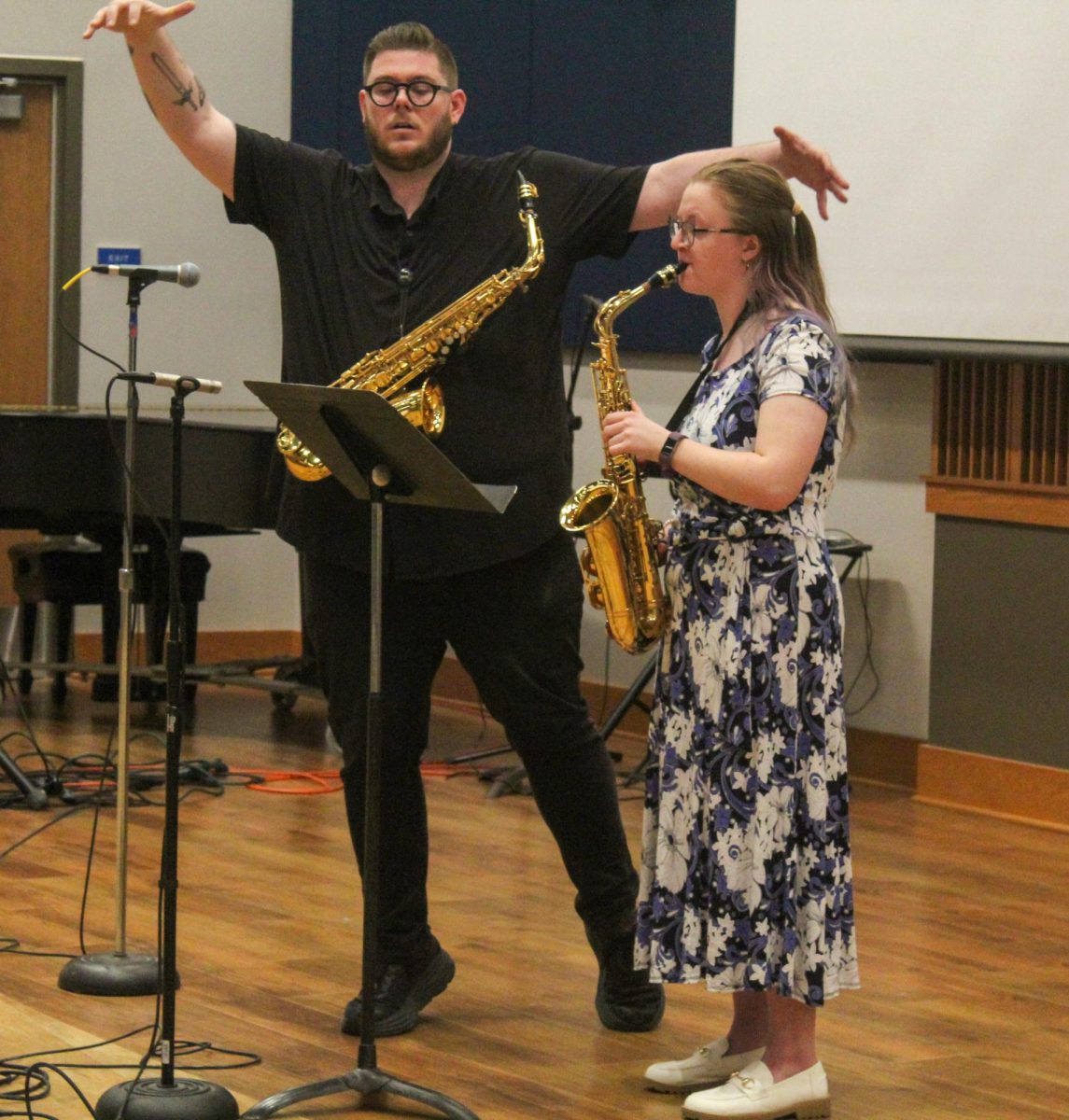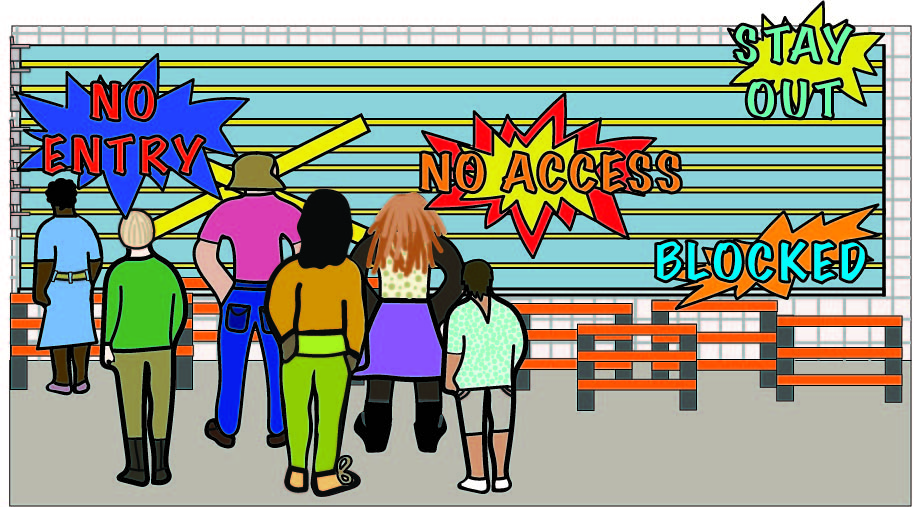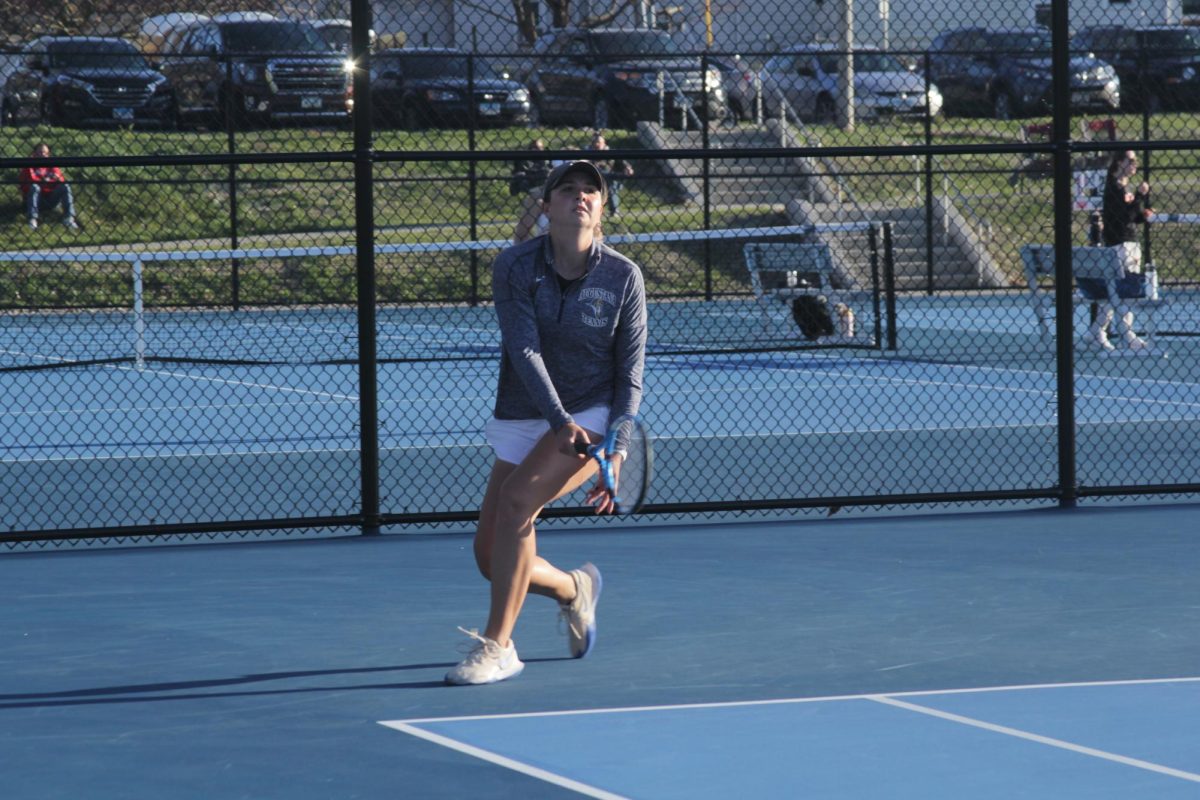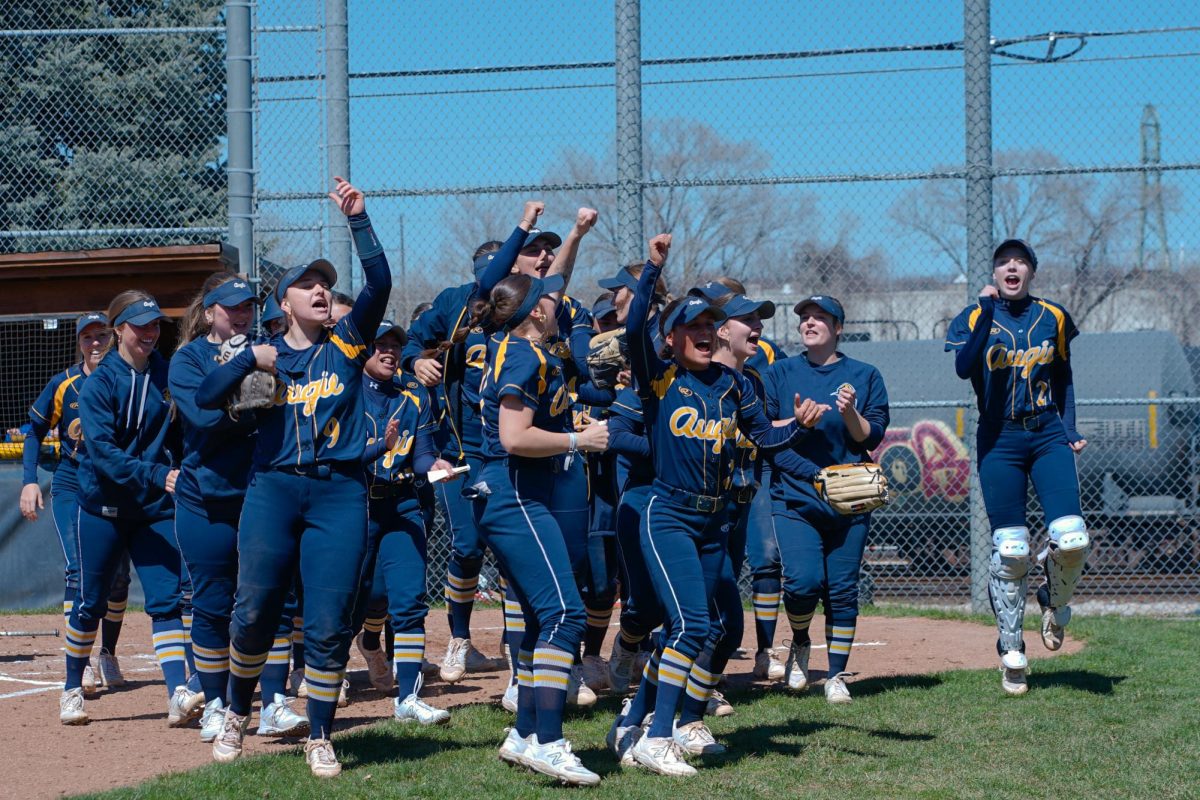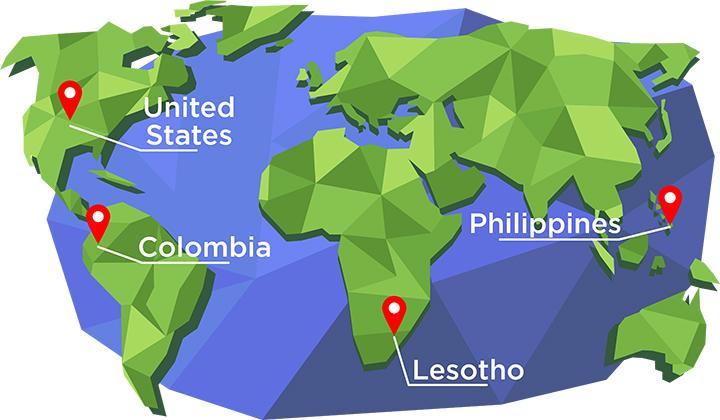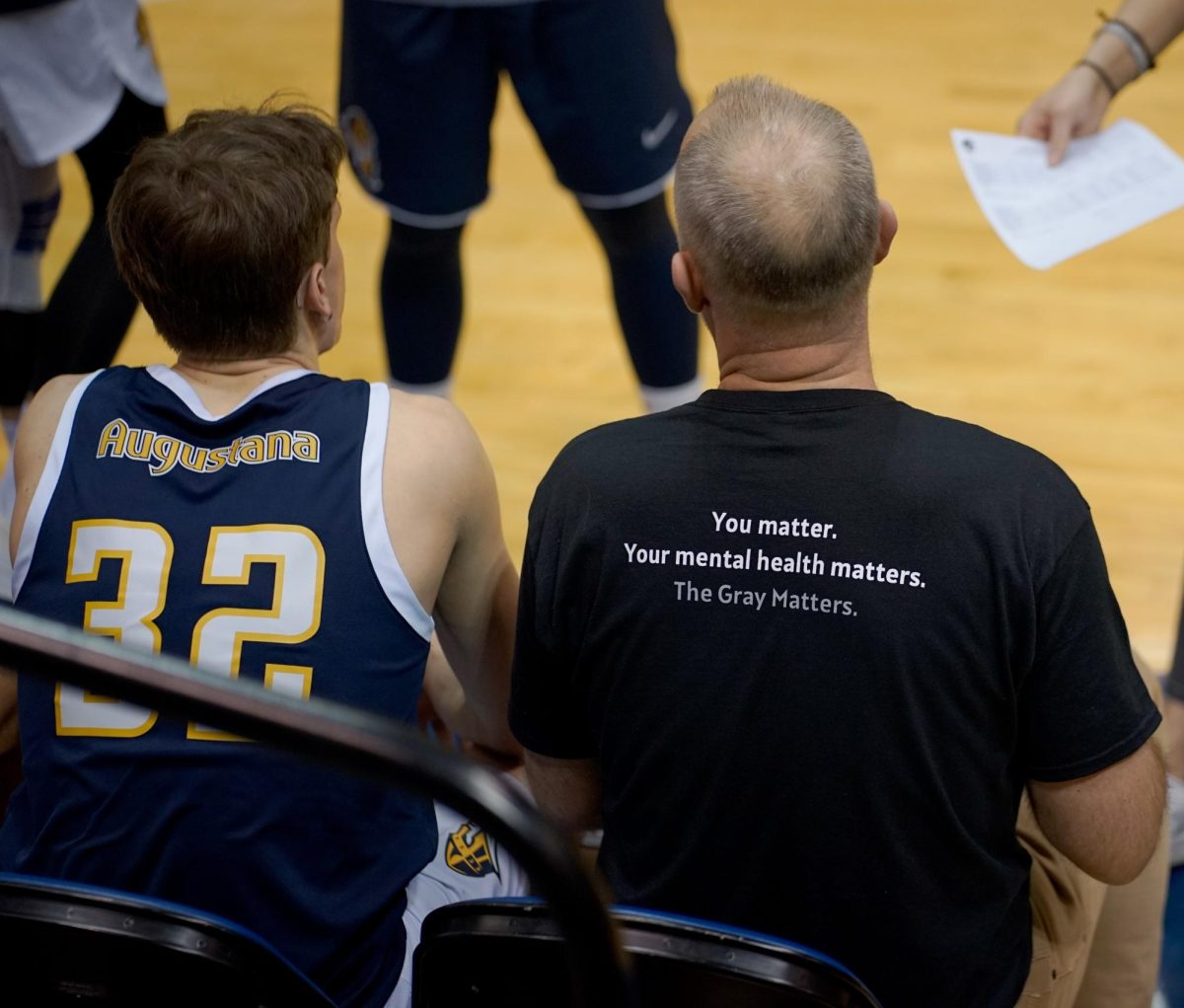Article by Anh Cao and Brady Johnson.
Society seems to view higher education as a stepping stone towards a financially stable career. Students spend four years in college with a few internships scattered throughout, graduate and then get a job – that is the “norm.” But every now and then, some graduates detour away from the “get a job” step, embarking on a different journey.
An alternative post-graduation plan is taking a “gap year.” A gap year is when graduating undergrad students take a short break before entering the workforce or continuing their education. While this is no foreign concept to high schoolers, college graduates face unique challenges such as the competitive job market and student loans that make the idea of a gap year seem costly and thus, impossible.
This year, Augustana has at least four seniors taking the path less traveled. Kirsten Parr is volunteering through the Jesuit Volunteer Corps (JVC) while Stephie Benito, Grace Fitzpatrick and Sophie Reid have chosen to enter the Peace Corps.
Parr, majoring in Anthropology and Psychology, says a core value for her is helping others. Currently, she is the vice president of Habitat for Humanity, a club on campus that helps people find affordable housing, as well as a part of the Chi Omega Gamma sorority. According to Parr her sorority helps foster service for others.
“I just love doing service,” Parr said.
“So when a couple of the girls from my sorority actually brought up that they were doing a service year I thought that was interesting. I don’t want to go straight into Grad school and make that financial decision yet if I don’t know if I want to do that in the long run.”
JVC is currently communicating with companies on Parr’s behalf to place her in one of the three cities that Parr established as her preferred locations: Phoenix, Arizona; Sacramento, California and New Orleans, Louisiana.
“It’s different than the Peace Corps that they have a greater focus on personal development, spirituality and community of a service year,” Parr said. “You are doing service and you are living in a lower income house with other people. Pushing the boundaries of what you might be used to. The community really appealed to me.”
In July, Parr will participate in the Camino de Santiago pilgrimage as a stepping stone before her year of JVC Service.
According to Benito, “The Peace Corps sends people from the United States for two years at a time to work on different projects all over the world. Someone could be sent to help in the health sector, agriculture, education, youth in development, etc.”
Benito, studying Spanish education, had always known she wanted to help others.
“For as long as I can remember, I’ve wanted to be a teacher and I’ve known that I want to help people,” Benito said.
Benito is going to teach English in Colombia for two years. She hopes the experience will make her a more empathetic and culturally sensitive teacher.
Fitzpatrick, a Religion major, had a different reason for not joining the workforce right after graduation.
“I have always thought about going abroad after school. I have always loved learning about other cultures, and it was really interesting to me to be immersed in other cultures for a good amount of time,” Fitzpatrick said.
Fitzpatrick will be working as an HIV/AIDS and Adolescent Health Advocate in Lesotho. Avert, an HIV and AIDS charity organization, says that Lesotho has 23 percent of its population living with HIV in 2018. The data comes from a 2019 study from the United Nations, UNAIDS data 2019.
Reid, a Multimedia Journalism and Mass Communication and Political Science major, is planning on volunteering in the Philippines. The exact location of her community will not be known until she arrives.
“I am lucky to be in a privileged part of my life to be able to go,” Reid said.
“I don’t have anyone dependent on me and I don’t need to get a job right away. I can be free for two years and I realized that if I ever was going to do a crazy once in a lifetime experience like the Peace Corps, now would be the time.”
Reid’s desire to join the Peace Corps stemmed from a fascination for the organization that started in high school.
She always planned to join a group to help others through peaceful measures of building community. The Peace Corps was the only group worth working for, according to Reid, because she thinks other international groups focus on imposing western values on the communities they’re claiming to help.
Instead, Peace Corps volunteers will partake in three months of training in the country they are volunteering in to make sure their language is sufficient and they are fully prepared to live and work in communities for two years.
“Within the mission of Peace Corps, there are three different goals,” Fitzpatrick said.
“One is to help the community that you’re in and give them the tools that they need to reach their goals. The next is for Americans to learn about other cultures and the third is for other cultures to learn about Americans.”
Despite some differences in their specific programs, Benito, Fitzpatrick and Reid had some similar reasons as to why they chose the Peace Corps over other organizations. The duration of these programs by the Peace Corps was one of them.
“Peace Corps is a 27 month commitment which was also appealing to me as opposed to shorter programs because I feel that there will be more time to truly integrate with my community and have time to complete my project to the best of my ability,” Benito said.
“Peace Corps stands out because it’s not just about what you can do while you’re there, but rather it has a focus on creating sustainable communities so that when Peace Corps volunteers complete their service, the community can continue to grow on its own.”
Parr’s program is for one year, but volunteers could continue on as employees of the company. According to Parr, one of her friends did just that after her time at JVC.
“I’ll be the only person [Peace Corps volunteer] in the community I’m placed in,” Reid said.
“It’s fully immersive living there for two years. You’re never doing a project by yourself. You’re always working with people in the community and you never go to a community unless they request a Peace Corps volunteer.”
Fitzpatrick found the philosophy of the Peace Corps to be something she agreed with.
“I ended up choosing Peace Corps because it, to me, seems like the most ethical and sustainable way to [learn about another culture],” Fitzpatrick said.
“I think the time of it being two years is what makes it ethical. Other programs usually max at 1 year.”
The seniors are looking forward to starting their respective journey and are optimistic of what the future holds for them after they get back.
“Upon completing my service from Peace Corps, I will have two years of teaching experience, which I will be able to learn from and take back with me to the United States,” Benito said.
“Since I hope to come back and teach Spanish, spending two years in Colombia teaching English will provide me with a larger world view to share with my students when I return…”
For Fitzpatrick, spending two years with the Peace Corps is a testament to her strength.
“It’s not easy so being able to say that you made it 2 years with no electricity and running water says something to your character,” Fitzpatrick said.
“Saying that you’ve done the Peace Corps gives you a leg up because it’s a U.S. Government thing, and also because you just got this whole new sense of cultural awareness.”
Disclaimer: Sophie Reid is the co-editor-in chief of the Observer.
Illustration by Kevin Donovan.

